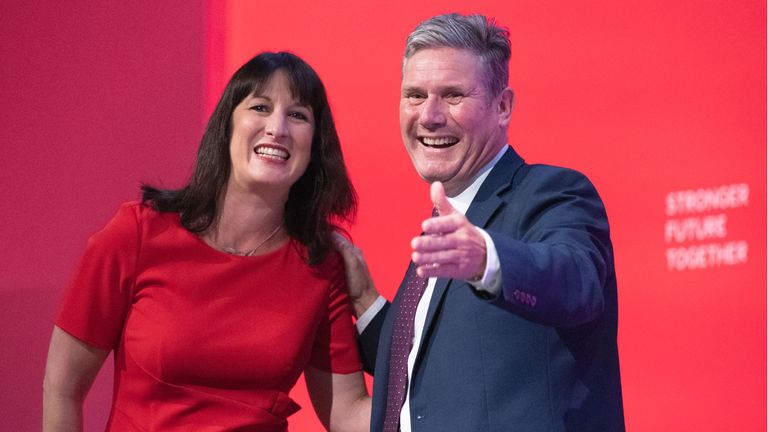Community Energy England, the Renewable Energy Association and a leading advocate of collective ownership of power assets have welcomed Labour’s £400 million pledge today of cheap loans to citizen-controlled green power co-operatives.
CEE says Labour stands to “turbo-charge” the sector, freeing up volunteer-run co-ops “to be a powerhouse for energy transformation in every community”.
An extra 8GW of renewable generating capacity, to be built by 2030 and sponsored by GB Energy, a new nationalised investor, is among a revamp of Labour’s new policies announced today.
Labour said its Local Power Plan will put “more solar panels on public land or housing estates, and empower local communities to come forward with projects directly owned by local people.”
The party unveiled its radical new direction during Community Energy Fortnight, as over 320 co-operatives nationwide celebrate more than 330 MW of democratically accountable capacity already installed.
Under Labour’s sharpened Local Power blueprint, councils too will receive £600 million a year to boost municipal generation, in return for identifying generation sites and applying easier rules granting planning approval. Profits from sales of municipal energy will go to improve services or lower council taxes.
Labour’s bigger role for co-ops and councils comes after shadow chancellor Rachel Reeves rowed back last month from an earlier pledge to spend £28 Billion every year on renewables. That figure is now downgraded as a target for the fifth year of any Labour government.
Speaking this morning in Edinburgh, Sir Keir Starmer – pictured with Reeves – was unveiling Labour’s plans to:
- loosen planning curbs in England & Wales which continue in practice the Tories’ seven year ban on new onshore wind farms, the cheapest form of low-carbon power
- end new North Sea oil & gas extraction, but respect all licences granted before Labour takes office. These are likely to include the Rosebank field, west of Shetland
- set up GB Energy, as a nationalised body to accelerate renewables, with its headquarters in Scotland
GB Energy’s role would include overseeing the recycling of profits from municipal energy sales. Councils could use that income to cut council tax, pay for improved public services or simply provide rebates on energy bills.
Community Energy England quantifies big social benefits delivered by volunteer-managed renewables. Advice delivered by its supporters across England achieves at least £9 of social benefit for every £1 spent, it claims. In 2021, the sector’s toughest year for operations, co-op members worked with more than 51,000 households and saved £3.35m on energy bills.
Emma Bridge, CEE’s chief executive commented; “We warmly welcome Labour’s emphasis on bringing together communities with the public and private sectors as a key part of their Clean Power plan.
She went on: “Community energy groups are already working with schools, businesses and community buildings to install renewable energy, helping fuel poor homes to reduce their energy bills, supporting unemployed people to build skills and gain new employment, and much more. But there are many parts of the country that don’t yet have community energy.
“Building a zero-carbon energy system is a social issue that requires a just transition. Community energy builds the consent, trust and active participation to make this happen.
“Labour’s announcement is a strong step towards enabling all communities to have access to their own energy projects and creating a fair, zero carbon energy system”, Bridge added. Community Energy England looks forward to working with them to realise that vision.”
In Scotland, onshore wind schemes controlled by co-ops deliver on average 34 times the community benefit of commercial projects, the sector claims.
From the Renewable Energy Association, chief executive Dr Nina Skorupska CBE welcomed Labour’s move.
“As Sir Keir makes clear, renewables can deliver cheaper, greener power than any alternatives and must be rolled out at scale as quickly as possible. The REA echoes his statement that clean energy is now essential for national security.
“We agree in principle that local communities should benefit economically from projects in their areas, as this could become a major added benefit of the Net Zero transition”.
Sarah Merrick, founder & CEO of Ripple Energy, the venture enabling collective ownership of wind and solar farms, also backed Labour’s plan.
“We welcome Keir Starmer’s commitments to overturn the de-facto ban in England on onshore wind and speeding up grid connections”, said Merrick. “Action is long overdue“.
Crowding in private investment was a key plank of Starmer’s speech. For a truly democratic and just transition, investment from households across the country must be crowded in too. People, as well as big financial institutions, can and should be able to own and directly benefit from the UK’s new wind farms and solar parks.
“Ripple has already shown it’s possible, we stand ready to deliver on a much larger scale.”




